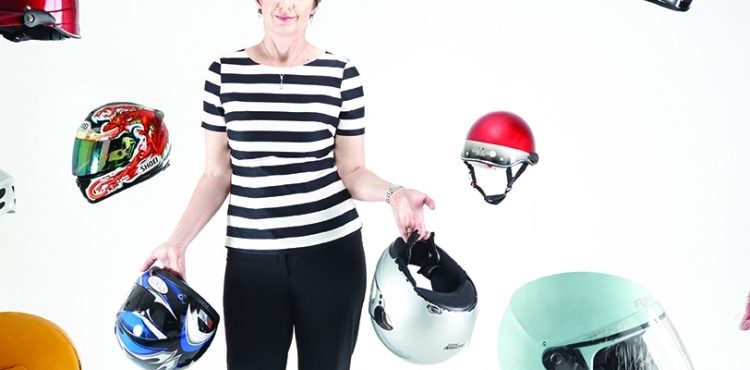
Professor Rebecca Ivers: the successes and challenges of a woman in science
As nominations open for this year’s 100 Women of Influence Awards, one of last year's winners Professor Rebecca Ivers shares her experiences as a woman in science and gives her advice to young women starting their research career.
Last year Professor Ivers, Director of Injury Division at The George Institute for Global Health and Professor of Public Health at the University of Sydney, won the prestigious ‘100 Women of Influence Award’ which celebrates women who are leading in all aspects of Australian life.
What first drew you to a career in science?
I started as a clinician where I was working with patients one-on-one, but I moved to research because I was drawn to the idea of helping people on a much bigger scale. Working in public health research is incredibly rewarding because you can see change at the local level. What we do affects government and policy, but ultimately it helps real people’s lives. It’s rare for people in any workplace to see their work making a difference like that.
What unique challenges do women in science face?
Women make a huge contribution in science but there is still a struggle at the highest levels. It’s really important to have funding to help career disruptions. We don’t want to revert back to the time when only people who could work 100 hours a week could succeed. But if you look at the senior level today, the majority are people who haven’t had to divide their time between career and family, which means it’s mostly men. This needs to change.
What do you think of the recent #distractinglysexy hashtag on Twitter, which satirised and drew attention to issues of discrimination against women in science?
It didn’t surprise me in the slightest, because the reality is some people still think of women in a particular way and that’s unacceptable. This applies across industries too, as science is not unique when it comes to gender equity compared to other industries.
What can Australian workplaces do to help address the problem?
I’m a big supporter of quotas in the boardroom, but what will really make a difference is ending the stigma about men being primary carers. It won’t be until it’s seen as okay for men to take time off to care for children that gender equity will be a reality.
A flexible workplace that supports workers’ career and family commitments is also crucial. I have three kids myself and I’ve been lucky that The George Institute and especially Principal Director Professor Robyn Norton have supported me all the way through.
There is a critical need for sustained funding in medical research and science so we don’t lose our best scientists to other industries or countries. Maintaining funding schemes that specifically support women in science is essential to this.
Who are some of your own female role models?
To name a few: Professor Robyn Norton here at the George Institute, Professor Caroline Finch (Director of the Australian Centre for Research into Injury in Sport and its Prevention), Professor Belinda Gabbe at Monash University who leads ground breaking work in serious injury and its outcomes and Margie Peden who leads injury prevention efforts at the World Health Organisation are just some of the women who have inspired me throughout my career. They have all been valuable peers and mentors and are all women I really look up to and admire.
How do you feel about being a role model yourself?
It’s a critically important role to be a leader in the field, both for my peers, emerging scientists and for young women. Everyone needs to see women getting out there in science, making a difference and I am happy if I inspire young women to work in this field.
What would you say to young women just starting their careers in science?
My key piece of advice is to work in an area you’re passionate about and surround yourself with people you trust. Success is sometimes a mix of being strategic and opportunistic, but just keep soldiering on and you’ll get there.
Do you have questions for Professor Ivers? Ask her on Twitter at @RebeccaIvers
Nominate a female leader you admire for the 100 Women of Influence Awards 2015.



